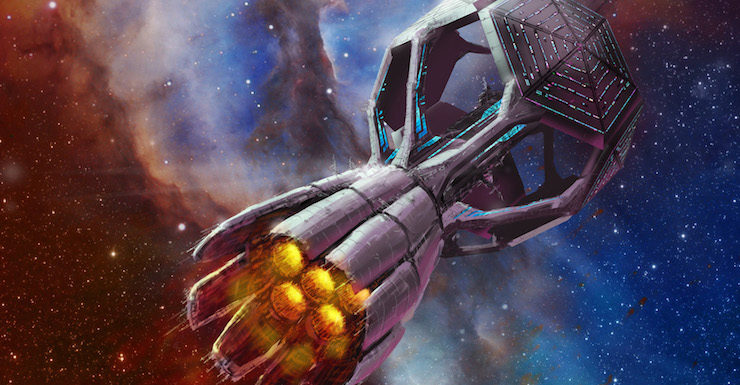Exile!
Few calamities sting like being driven from the land one once called home. Exile is therefore a rich source of plots for authors seeking some dramatic event to motivate their characters. You might want to consider the following five books, each of which features protagonists (not all of them human) forced to leave their homes.
Orbit Unlimited by Poul Anderson (1961)
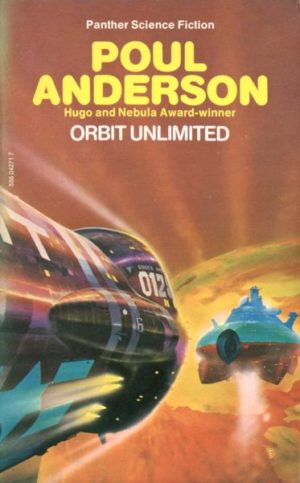
The Federation provides Earth’s teeming billions with the bare necessities scraped from Earth’s meager, dwindling resources, in return for which it asks only for a few trifling luxuries for the Guardians who govern the planet and obedience from the masses. North America’s Constitutionalists resist the Guardians; this could trigger a brutal campaign of repression.
The Astronautical Department offers a workable alternative: turn a few sublight ships over to the most determined Constitutionalists, and allow them to take their quaint, outdated political extremism to Eridani’s Rustum, which is a comfortable twenty light years and forty years of travel away.
It’s true that only a few small regions of Rustum are habitable for humans. But hey! That’s not the Federation’s problem.
***
Earthwreck! by Thomas N. Scortia (1974)
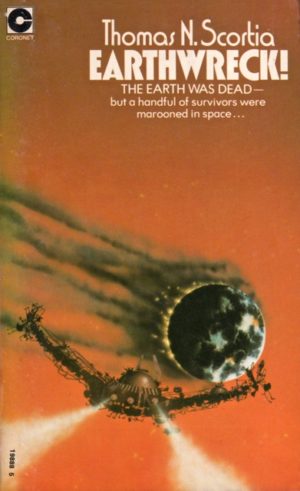
Captain Quintus Longo sets off for a tour in the US space station, unaware that he will never see his wife and children again. A cabal of Japanese and Palestinian terrorists succeed in detonating a small nuclear device in Tel Aviv. Israel fingers the wrong culprit and bombs the Aswan dam, drowning Egypt with radioactive water. The catastrophe escalates into a global nuclear exchange.
The American space station is untouched. The survivors discover that while they could wait out the radiation now slowly strangling life on Earth, brilliant innovations in biological warfare have turned Earth into a death trap. The only reasonable alternative is to try to settle Mars. However, the Americans don’t have the resources to succeed on their own. Success depends on the Russian space station, if only because the Russian cosmonauts are fifty percent women, whereas the more sexist Americans have but a single woman astronaut. The survivors must put aside the recent unpleasantness between their nations if they’re going to avoid extinction.
***
The Necessary Beggar by Susan Palwick (2005)
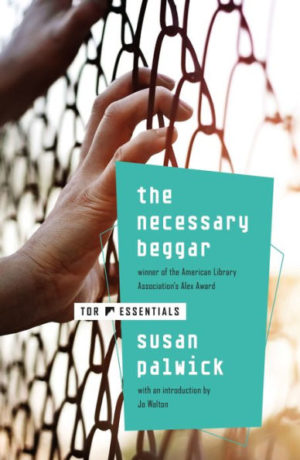
Darroti refuses to explain why he murdered Mendicant Gallicina; Mendicant Gallicina is too dead to elaborate. The city of Lémabantunk doesn’t need any explanation to punish Darroti and his unfortunate extended family. They are bundled through a one-way gate into an alien land known to its exotic inhabitants as the United States of America.
Darroti repents of his crime and kills himself… but only after he, father Timbor, sister Zamatryna, brother Macsofo and the others are trapped in a refugee camp in an America that takes a particularly dim view of its extradimensional guests. Darroti is beyond mortal concerns. His surviving relatives, on the other hand, must adapt to an unfamiliar foreign land that despises them. Or die.
***
Record of a Spaceborn Few (Wayfarers, Book 3) by Becky Chambers (2018)
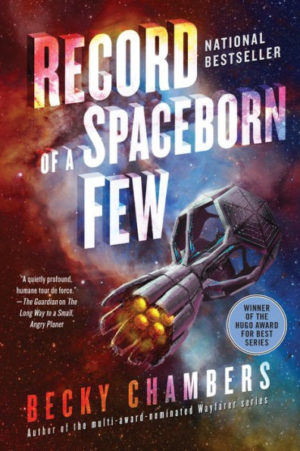
Having transformed the Earth from a garden world into a garbage tip, bold visionaries strip-mined the reeking remains to create the Exodus Fleet. This armada launched into interstellar space to search for a new home.
No home is found. As the ships voyage into the void, the Exodans create a new culture shaped by strict ecological and social constraints. They manage to live well and peacefully on very limited resources. (If they’d learned to do this before they had to leave, they wouldn’t have had to leave. Oh well.)
At last they find a home of sorts: a lifeless solar system without habitable planets, but a source of solar energy and asteroid minerals. It’s a gift from the Galactic Commons, a vast, technologically advanced community of alien civilizations who regard the Fleet as an amusing primitive curiosity.
The people of the Fleet face two equally uninviting alternatives:
- lead virtuous but poor lives in an environment demanding constant maintenance, or
- enjoy comparative prosperity as third-class citizens amongst aliens.
Some humans choose 1; some choose 2.
***
Shards of Earth by Adrian Tchaikovsky (2021)
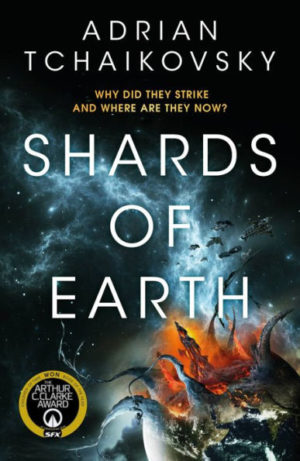
The alien Architects have crushed Earth. The human colonial worlds resisted the moon-sized alien vessels as best they could, eventually managing—somehow—to end the one-sided war thanks to cyborg Intermediaries. Peace is too late for Earth, which has been transformed by the Architects into a horrifying art piece memorializing billions of dead. But at least humanity as a whole survived.
Humans do the human thing and turn on each other. A generation after the Architects vanished, Intermediary Idris Telemmier discovers that he is more than a weary veteran. His enhancements make him a treasure of considerable interest to squabbling governments.
And the Architects appear to have returned…
***
No doubt you have your own favourite tales of exile, which are doubtless worthier than the books I chose. Comments are, as ever, below.
In the words of Wikipedia editor TexasAndroid, prolific book reviewer and perennial Darwin Award nominee James Davis Nicoll is of “questionable notability.” His work has appeared in Publishers Weekly and Romantic Times as well as on his own websites, James Nicoll Reviewsand the Aurora finalist Young People Read Old SFF (where he is assisted by editor Karen Lofstrom and web person Adrienne L. Travis). He is a four-time finalist for the Best Fan Writer Hugo Award and is surprisingly flammable.










